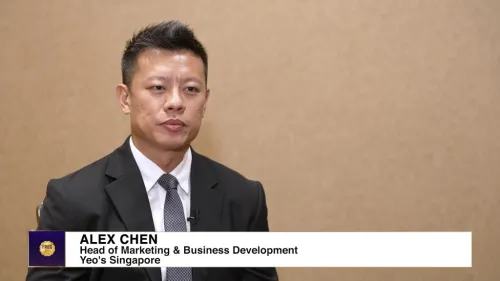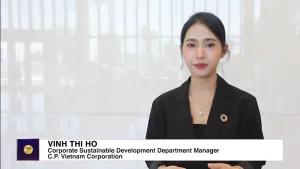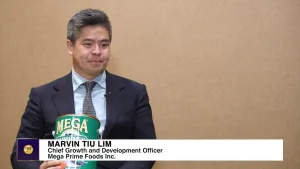
Generous and full of love: What the Big Four have to say about Budget 2023
This year’s focus is on tackling the high cost of living.
On exactly Valentine’s Day, Deputy Prime Minister Lawrence Wong delivered a budget speech focused on tackling the high cost of living by providing a cushion against tax hikes, providing a stable and livable wage, and upskilling workers.
One of the main topics of the speech is the increase in goods and services (GST) tax which increased from 7% to 8% this year and will increase to 9% in 2024. Wong said the government would be allocating an additional $3b to the Assurance Package, introduced to help Singaporeans cope with the increase in taxes.
The money will be distributed through forms like cash, account top-ups, and rebates as well as Community Development vouchers. Some of the funds will also go towards increasing the payout due under the AP between $300 to $650 for eligible Singaporeans over the remaining years of the package effectively bringing payments received by adult Singaporeans to between $700 and $2.25k over five years.
The money will be distributed in the form of cash, account top-ups, rebates and Community Development Council (CDC) vouchers. The increase brings the size of the AP to $9.6b
Love and support for Singaporeans
Ajay Kumar Sanganeria, Partner, Head of Tax at KPMG in Singapore said the enhancement to the GST Voucher and assurance packages is a welcome move to help alleviate the ‘double-whammy effect’ of rising costs and the GST tax hike.
“With a stronger fiscal position than last year, Deputy Prime Minister Lawrence Wong's Valentine Budget 2023 has rightfully provided a slew of goodies for lower-income earners, working mothers, and retirees through various enhancements,” Ajay said
Kor Bing Keong, GST Leader at PwC Singapore said that Budget 2023 will be a memorable Valentine’s Day Budget but also encourages growing and giving love to new families and population building.
“The Government has not only ‘sweetened’ the GST vouchers and Assurance Package but also showered additional “love” in the form of various one-off support measures such as Cost-of-Living special payments and U-Save rebates to address the concerns over rising inflation. Greater love is always welcomed,” Keong said
According to Soh Pui Ming, Singapore Head of Tax at EY, the focus on helping families and lower income groups as well as businesses are generous and inclusive, without losing on the resiliency and long-term needs of Singapore in an ever-changing economy.
“Enhancing Singapore’s social compact is clearly the centrepiece of this year’s Budget. The
launch of Forward Singapore and the active participation of citizens highlight an interactive
and collaborative process to chart out our nation’s future. The enhancements to existing innovative schemes will drive innovation and new capabilities
as well as quality for our enterprises and workforce. This will help to safeguard our competitive
position amid the new challenging environment,” Soh Pui said.
Low Hwee Chua, Tax & Legal Leader at Deloitte Singapore said that the deputy prime minister’s promise to help Singaporeans seize new opportunities, strengthen the nation’s social compact, and provide assurance for families is a bold step towards the future, marking a significant shift in the nation’s outlook for post-pandemic times
“This is an encouraging sign of the government’s commitment towards building a better tomorrow. With the collective effort of the government and the people of Singapore, the nation will be better positioned to weather the storm and come out stronger. Through initiatives such as increased support for businesses and families, improved access to healthcare and education, and the development of a strong economy, the government has demonstrated its commitment towards creating an environment conducive to seizing promising opportunities and enabling citizens to strive for a better future,” Chua said.
Support for businesses
Wong also announced the introduction of the Enterprise Innovation Scheme. The scheme will enhance tax deductions for five key activities in the innovation value chain: R&D conducted in Singapore, registration of intellectual property, acquisition and licensing of intellectual property rights, innovation carried out with polytechnics and ITE, and training via courses approved by SkillsFuture Singapore and align to the Skills Framework.
“The new Enterprise Innovation Scheme not only rewards large businesses that participate in innovation activities via enhanced deductions up to 400%, but it also ensures that smaller businesses benefit from this scheme through the flexibility of a cash payout option,” Chai Wai Fook, Partner, Tax Services, at EY said.
PwC Partner Lennon Lee said the scheme would push more SMEs to take risks by conducting R&D and innovation activities in Singapore partially funded by the cash subsidies
Lee Bo Han, Partner, R&D & Grants Consulting at KPMG the scheme just reinforces Singapore’s commitment to being one of the most attractive countries for R&D.
“The cash payout for R&D is also encouraging for entrepreneurs in technology development. Today's announcement to support pervasive innovation further strengthens Singapore's competitiveness on a global stage,” Han said.
Deloitte Singapore CEO Cheung Pui Yuen that the scheme will give a much-needed push towards productivity.
Workforce support
One of the things that Deputy Prime Minister Wong reiterated is the focus on uplifting the workforce through upskilling which translates to an increase in opportunities for Singaporeans.
“I will focus on ensuring that training translates into good employment outcomes,” says Wong.
Jobs-Skills Integrators are to be appointed to develop labour market intermediaries to optimise training and job placement. Wong says integrators can be existing institutions. The government will pilot the Jobs-Skills Integrators in the precision engineering, retail, and wholesale trade sectors.
“The new Jobs-Skills Integrators pilot – which aims to help employers enhance training and place workers in suitable roles – is a fantastic means of government support that prioritises reskilling and upskilling as a key workforce strategy. To facilitate job matching, identification of skills gaps and training will not only alleviate enterprises’ talent crunch pressures but will enhance the effectiveness of matching demand and supply of key skills for the future.” Martijn Schouten, People and Organisation - Workforce Transformation Leader at PwC said.
Panneer Selvam, EY People Advisory Services - Asean Integrated Mobile Talent Leader commended the increase in CPF contributions as this ensures the future of the Singaporean workforce.
“To ensure retirement adequacy, the announcement of the increase in the monthly salary ceiling for CPF contributions from $6,000 to $8,000 across four years is not surprising. A review is necessary and timely to enable workers to build a strong safety net, particularly with a view to addressing rising costs,”. Selvam said.
Yap Hsien Yew, Tax Partner at Deloitte, agreed with this saying it will also provide financial security for older and middle-income earners.
“Gig workers also benefit from CPF rate adjustments and transition support, showing the Government's recognition of the importance of the gig economy. The added resources for the ElderCare Fund and MediFund will be a relief for seniors in need,” Yap said.
Read more about the Singapore 2023 Budget here.










